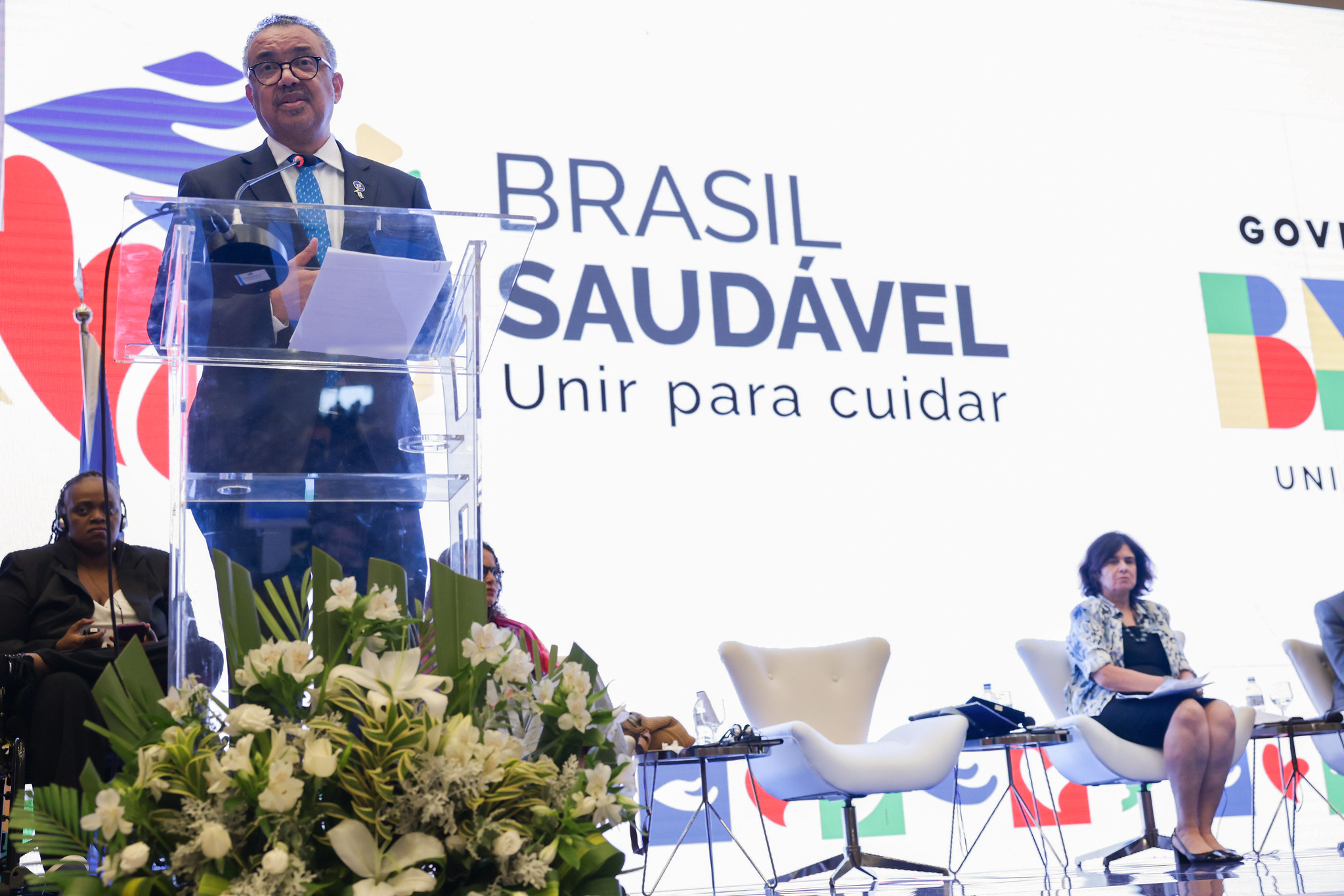Investment in health must be constant, defends Tedros Adhanom, of the WHO, in an exclusive interview for the G20 website
In an exclusive interview for the G20 website, Tedros Adhanom highlights the necessity of continued investment in health and the importance of ensuring sustainable financing for the sector. He praised the Brazilian presidency of the forum for making health a priority on the global agenda.

“We always say that health is fundamental, but in terms of funding, health is not properly funded,” pointed out Tedros Adhanom, Director-General of the World Health Organization (WHO), in an exclusive interview for the G20 website. As an example of this scenario, Adhanom told that resources for health during the Covid-19 pandemic were relocated to other areas as soon as the health emergency began to be brought under control.
“You see investments in health when there is a problem. For example, when the Covid-19 pandemic was on the rise, many countries panicked and invested a lot of money. Once the situation was under control, investment in health was relocated to other sectors. Investment in health must be constant. And we need to look for sustainable financing," he clarified.
“You see investments in health when there is a problem. For example, when the Covid-19 pandemic was on the rise, many countries panicked and invested a lot of money. Once the situation was under control, investment in health was relocated to other sectors. Investment in health must be constant. And we need to look for sustainable financing," he clarified.
Adhanom recognized the commitment of the Brazilian presidency of the G20 to putting health at the center of the forum's agenda and hopes that, in addition to the investment round proposal, the forum will be able to advance consensus on pandemic preparedness and response, stimulating local production of inputs and medications, equity in access to health, the promotion of digital health and the relationship between climate change and health. "We are very grateful to Brasil for putting health at the center," he celebrated.
One of the priorities of the Brazilian presidency of the forum is to make progress in the debates about the development of a mechanism that will allow countries to exchange debt repayment for investment in health results. The issue entered in the forum's agenda during the Italian presidency in 2021. For Adhanom, the proposal is innovative and important for improving global health financing. "The WHO fully supports it. We hope that the G20 countries agree, and not just the G20, but countries even outside the G20 agree, and that we move forward," he emphasized.
Round of investments in health
According to the WHO chief, the organization has been discussing funding to support developing countries through a proposal called ‘WHO Investment Round’ (WHO investment round, in translation). The initiative plans to accelerate the achievement of the Sustainable Development Goals (SDGs) by bringing together investors interested in safeguarding global health policy.
"The WHO investment round seeks to ensure predictable funding as a base for a stable economy; increase flexible funding to reduce persistent pockets of poverty; and allow WHO to sustain and further develop the systems and capacities needed to fulfill its essential functions in support of its Member States," explains the report of the 154th meeting of the institution's Executive Council, held in December 2023.
The measure was one of the themes discussed with President Luiz Inácio Lula da Silva and Nísia Trindade, Minister of Health. "This financing that could be generated is flexible so that we can support the countries that need our support based on their priorities," proposed Adhanom.